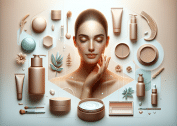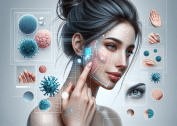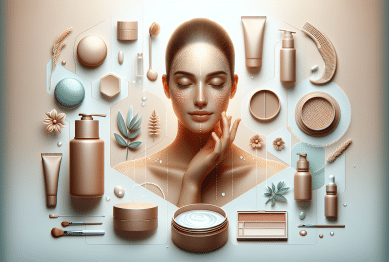Curious about how collagen supports a more youthful appearance? This guide explains the real impact of collagen for skin wellness, breaking down its natural role, trends in supplementation, and evidence-based routines for boosting radiance, elasticity, and hydration.
What Makes Collagen Essential for Skin Wellness
Collagen is frequently spotlighted as the backbone of healthy, resilient skin. As a structural protein, collagen delivers firmness and elasticity, building the basic framework that keeps complexions looking smooth and supple. Without enough collagen, fine lines may become more pronounced, and skin can lose its youthful bounce. What surprises many is that collagen production gradually decreases with age, influenced by both genetics and environmental exposure. This reduction often drives popular interest in lifestyle routines and products said to support collagen levels for younger-looking skin (Source: https://www.hsph.harvard.edu/nutritionsource/collagen/).
Nutrition is a key player in maintaining optimal collagen synthesis. Eating a diet rich in vitamin C, proline, and glycine is associated with improved collagen integrity. These nutrients work together at a cellular level to construct and repair collagen fibers. In contrast, high sugar intake and excessive UV exposure from sunlight can destabilize collagen networks and speed up visible aging. Lifestyle adjustments—such as balanced eating and sun protection—can meaningfully impact the look and feel of one’s skin even when topical products are part of a routine.
As science evolves, so does the conversation about collagen’s benefits for wellness and beauty. Research continues to shed light on how both internal and topical approaches affect skin’s structural proteins. Staying curious about new studies helps people make informed decisions, choosing strategies that suit unique needs and goals. Collagen’s role in skin vitality is widely recognized, but approaches to enhancement range from nutrition to daily skincare and more (Source: https://www.ncbi.nlm.nih.gov/pmc/articles/PMC7082444/).
Emerging Trends: Collagen Supplements, Powders, and Drinks
The popularity of collagen supplements is tied to a growing desire for visible, long-term beauty benefits. Available in powders, capsules, and convenient drinks, these supplements are promoted to support hydration, elasticity, and the reduction of fine lines when used as part of a balanced regimen. While scientific consensus is still developing, initial studies suggest hydrolyzed collagen peptides—forms that are more absorbable by the body—may support skin moisture and resilience (Source: https://www.ncbi.nlm.nih.gov/pmc/articles/PMC6835901/).
Choosing a collagen supplement involves considering source, purity, and dosage. Some prefer marine-based collagen due to similar amino acid profiles with human collagen, while others opt for bovine or porcine varieties. Many products include vitamin C or hyaluronic acid, known to further amplify results. Experts often recommend reviewing the ingredient list, sourcing practices, and available third-party testing to make more confident, well-informed choices. Routines can vary, with some choosing daily supplementation for perceived benefits over several months.
It’s important to recognize that supplements are just one part of a broader skin wellness plan. Hydration, sleep quality, and regular physical activity also influence how vibrant and youthful complexions appear. Many individuals combine lifestyle shifts with supplements, creating holistic approaches that yield more sustainable results. Staying patient is key—emerging research indicates that visible improvements are gradual and linked to overall health habits and consistent routines.
Diet and Lifestyle Choices that Support Natural Collagen
Foods high in vitamin C such as berries, citrus, and leafy greens play a foundational role in supporting collagen synthesis. This antioxidant-rich vitamin acts as a cofactor in the production of new collagen, helping maintain a radiant complexion over time. Adding ample sources of protein, from both animal and plant origins, also gives the skin a strong raw material supply. Some routines highlight bone broths or gelatin as dense sources of collagen, though the body ultimately breaks these down into amino acids for use in many tissues.
Sun protection matters more than most realize. Chronic UV exposure damages collagen fibers and destabilizes the skin’s extracellular matrix, hastening the onset of wrinkles and textural irregularities. Wearing broad-spectrum sunscreen every day, even during overcast seasons, reduces this stress on skin structure. Smoking, stress, and insufficient sleep are additional lifestyle elements that undermine the body’s ability to repair and generate healthy collagen, so forming positive habits makes a measurable difference.
Regular movement and exercise foster a rich blood supply to the skin, delivering nutrients needed for regeneration. Activities such as brisk walking, yoga, or swimming can support overall skin tone by encouraging lymphatic drainage and nourishing tissue. Experts highlight that while no routine can entirely halt age-related collagen loss, layering dietary choices, proactive protection, and physical activity supports lasting wellness and beauty goals (Source: https://www.aad.org/public/everyday-care/skin-care-secrets/anti-aging/retinol).
Professional Skin Treatments: Microneedling, Lasers, and Peptides
Technology continues to advance approaches to skin rejuvenation, with microneedling and non-invasive laser therapy leading the way. Microneedling treatments use tiny needles to create controlled micro-injuries that stimulate skin’s innate repair systems. This approach encourages the production of new collagen and elastin, enhancing texture and reducing the appearance of fine lines and scarring. Treatments are typically performed by licensed professionals and may involve several sessions for optimal outcomes.
Laser treatments are another option, targeting both surface and deeper skin layers to encourage collagen remodeling. By delivering energy into the skin, lasers like fractional and radiofrequency devices initiate a natural regenerative process, leaving smoother and more even skin behind. Dermatologists may recommend combining treatments with topical serums or peptides that are formulated to penetrate and nourish newly refreshed skin. Compatibility and risks should always be discussed with a qualified provider before beginning any professional treatment plan.
Peptide-based serums and creams offer an at-home complement, leveraging smaller chains of amino acids thought to signal the skin to produce more collagen. Clinical trials on specific peptides—such as palmitoyl pentapeptide—have shown measurable improvements in skin firmness and hydration. Including these products in a daily regime, alongside sun protection and gentle cleansing, provides a multi-faceted approach that supports both immediate and long-term skin health (Source: https://www.ncbi.nlm.nih.gov/pmc/articles/PMC5104202/).
What Results to Expect and How Long it May Take
The pursuit of youthful-looking skin is both ancient and ongoing. For those investing in collagen-boosting routines, it’s natural to wonder when results might appear and how noticeable changes will be. Visible improvements are typically the product of consistent, layered wellness routines—combining nutrition, topical products, or professional treatments. It’s common for people to notice subtle improvements in skin hydration and softness within weeks, but significant changes in firmness may take several months (Source: https://my.clevelandclinic.org/health/articles/23089-collagen).
Clinical studies on hydrolyzed collagen supplementation often involve periods of 8 to 12 weeks, showing increases in skin elasticity and moisture, though individual responses vary. Professional treatments, such as microneedling or lasers, may yield noticeable effects in skin texture and brightness after a few sessions, but cumulative improvements build over time. Patience and ongoing commitment are essential—getting the most from any collagen strategy requires an understanding that skin wellness is a marathon, not a sprint.
Aging is a natural process, and every skin type is unique. Genetics, environment, and daily habits all shape what collagen routines deliver. Experts advise focusing on small, consistent upgrades to routines rather than expecting dramatic, overnight results. By setting realistic expectations and staying engaged with evidence-backed strategies, anyone can support healthier, more radiant skin in a sustainable way.
Making Informed Choices: Myths, Hype, and Reputable Research
With collagen’s growing popularity, myths and marketing hype can occasionally overshadow well-founded science. Not all claims around collagen for beauty are universally supported by research, and some products may not deliver measurable benefits. It helps to review published clinical data, look for independent third-party testing, and balance expectations.
Some sources claim topical collagen can directly enter the skin and build its internal structure. However, science suggests collagen molecules are generally too large to penetrate deeply when applied in cream form. Instead, products that boost the skin’s own collagen production—such as those containing retinoids, vitamin C, or peptides—tend to align more closely with research-based insights. Always refer to evidence from peer-reviewed studies and professional organizations when navigating new claims.
Public health resources, dermatology societies, and major research institutions provide continually updated guidance. Thoroughly exploring these sites can help clarify which routines have demonstrated results, and which remain more speculative. Weaving together credible information and curiosity about innovation allows for more empowered wellness and beauty choices (Source: https://www.aad.org/public/diseases/a-z/collagen-boost).
References
1. Harvard T.H. Chan School of Public Health. (n.d.). Collagen. Retrieved from https://www.hsph.harvard.edu/nutritionsource/collagen/
2. Sibilla, S., et al. (2015). An Overview of the Beneficial Effects of Hydrolysed Collagen Peptides on Skin Properties: Scientific Background and Clinical Studies. Retrieved from https://www.ncbi.nlm.nih.gov/pmc/articles/PMC6835901/
3. Cleveland Clinic. (n.d.). Collagen: What it is, Types, Function & Benefits. Retrieved from https://my.clevelandclinic.org/health/articles/23089-collagen
4. American Academy of Dermatology Association. (n.d.). Collagen: The Complete Guide to the Protein Behind Skin Firmness. Retrieved from https://www.aad.org/public/everyday-care/skin-care-secrets/anti-aging/retinol
5. Alster, T.S., & Lupton, J.R. (2021). Microneedling: Evidence and Experience. Retrieved from https://www.ncbi.nlm.nih.gov/pmc/articles/PMC5104202/
6. Choi, F.D., et al. (2019). The Science of Collagen Supplements for Skin Health: A Review. Retrieved from https://www.ncbi.nlm.nih.gov/pmc/articles/PMC7082444/










 AI Stories Changing the Way You See the World
AI Stories Changing the Way You See the World 

